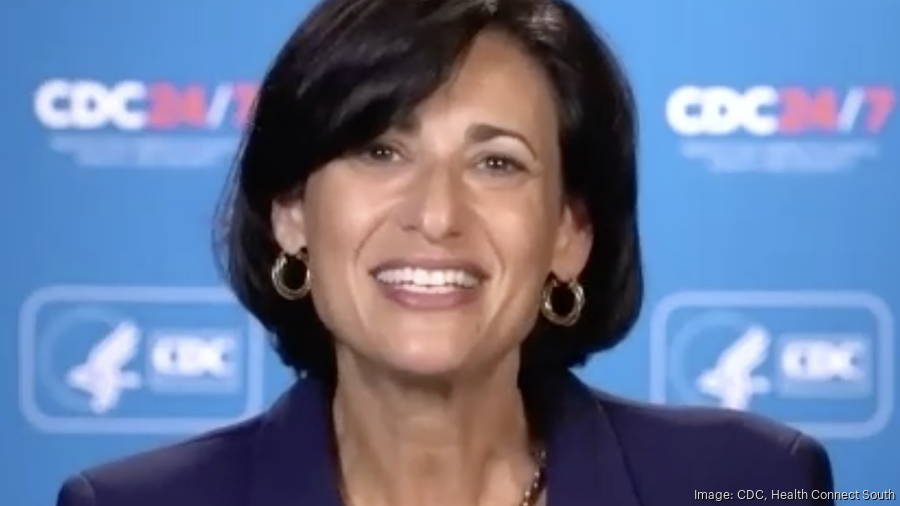Atlanta Business Chronicle’s Healthcare Forum Oct. 21 began with a “fireside chat” between David Rubinger, market president and publisher of the Chronicle, and Dr. Rochelle Walensky, director of the U.S. Centers for Disease and Prevention (CDC). During their talk, Walensky answered questions about the role of employers in bringing workers back to the office, the importance of both flu and Covid-19 vaccinations, how she makes crucial crisis management decisions and what other issues the CDC oversees at its headquarters in Atlanta.
On employers’ responsibilities to their workers as they return to the office during the pandemic:
“Employers can very much be a trusted messenger in this. People go to their employers for advice all the time. Employers themselves can help build vaccine confidence, encourage people to get vacinnated and encourage open, public dialogue and conversation. It can be in a place where people go to get their questions answered, and a very trusted place.”
The CDC website offers resources including a workplace vaccination program, Walensky said, and encouraged employers to “join our efforts. As you work to get people vaccinated, part of this is seeing if they can get vaccinated during work time, if they can get their children vaccinated during work time.” She suggested employers offer paid leave, including paid time off in case of side effects, as well as consider providing transportation to employees needing vaccinations. “There is a lot employers can do to facilitate, to bolster the conversation and be a place of important information when people have questions.”
On the importance of flu vaccines as well as Covid shots:
“Last year, we had a remarkably modest flu season, very little disease, probably because of everything we were doing to prevent Covid also worked to prevent flu. That means this season, we don’t have a lot of population-level immunity to the flu, and that is one thing that does protect us year after year.”
Typically, flu vaccination rates are 50%, according to Walensky, stating that last year it was 52%. Young people, as well as racial and ethnic minorities, have a lower rate of vaccination. “We want to increase the vaccination rate and continue with prevention strategies. That will be key to making sure we don’t have a really tough flu season this year.”
On the size of the CDC and its relevance in Atlanta/Georgia, Walensky said:
· CDC has over 10,000 employees in Georgia and is one of the state’s top 15 employers.
· CDC works 24/7 on issues including infectious diseases, and non-infectious threats such as chronic illnesses, opioid addiction, climate change and firearm safety, and “woven through all of it through an equity lense,” she said, adding that part of its mission is to answer the question, “How do we offer as much help to as many people as possible?”
· The organization has over 5 million square feet of office and lab space.
· Every day, CDC purchases $218 million worth of goods from services of Georgia businesses.
· If the CDC were a publicly traded company, its annual operating budget would rank 107th on the Fortune 500 list.
“CDC is a recognizable presence in Atlanta and in the state of Georgia [but] I don’t necessarily think everybody recognizes what a presence we are,” she added. “We collaborate closely and have a deep heart in Atlanta since we were founded [75 years ago].”
On doing her job without being distracted by the media and outside messages:
“You need to read the media. You need to be a consumer of the media. You need to understand what people are saying. What I’ve learned over last nine months is, generally those feeds are short-lived and can quickly be turned in the other direction. What really I do is put my head down and make sure I’m folliwng the science and doing the right thing because whatever the media says, if I feel like I’ve done the right thing, I can stand in front of the agency, be proud of the decision I’ve made, defend the decisions I’ve made, even when they are not popular.”
